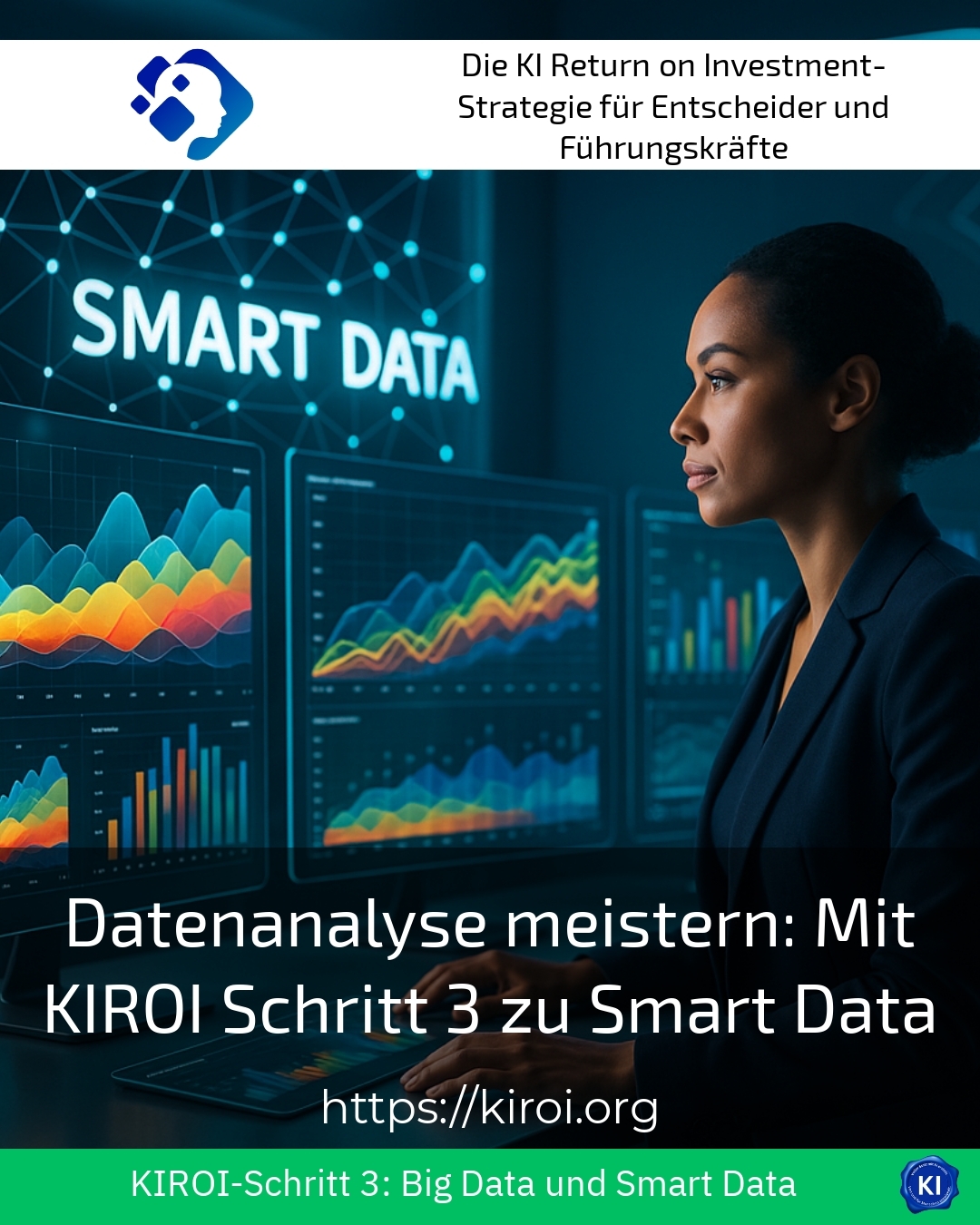Today more than ever, data analysis is an indispensable skill for gaining valuable insights from complex data streams. In the third step towards smart data, KIROI accompanies companies and experts on their way to not only collecting data, but also to utilising it in a targeted and strategic manner. This blog article gives you a comprehensive insight into how to successfully master data analysis and shows practical examples from various industries that illustrate the added value of data-driven decisions.
Data analysis as the key to data-based success
Data analysis means systematically analysing facts and figures in order to make patterns, trends and correlations visible. Companies in every industry use different methods of data analysis to optimise their business processes. In the financial sector, for example, analysts use regression analyses to make predictions about market movements. In the healthcare sector, predictive analyses play an important role in identifying patient risks at an early stage. Logistics companies, on the other hand, benefit from cluster analyses to make supply chains more efficient. In such projects, KIROI provides targeted support in the implementation and management of data analyses to ensure that the results have a lasting effect.
BEST PRACTICE with one customer (name hidden due to NDA contract) With the support of KIROI, an international retailer was able to segment its customer data through a comprehensive explorative data analysis. Two new customer segments were identified, which significantly improved the targeted approach and marketing efficiency.
KIROI's Step 3: From raw data to smart data with targeted data analysis
In the third step, KIROI supports the transformation from mere data sets to smart data containing decision-relevant information. First, the data is cleaned and harmonised in order to create a qualitative basis. This is followed by the selection of suitable models for data analysis. Depending on the objective, methods of descriptive, diagnostic, predictive or prescriptive analysis are used. In this way, we not only understand what has happened, but also why and what actions can be derived from it. An important aspect is the combination of statistical methods with modern AI in order to recognise patterns even in very large data sets.
BEST PRACTICE with one customer (name hidden due to NDA contract) KIROI helped an energy supply company to analyse consumption data using supervised machine learning. The result was reliable consumption forecasts that were used to improve capacity planning.
Practical examples for the use of professional data analyses
In the healthcare sector, a hospital successfully used diagnostic data analysis to identify the causes of increased infection rates in certain departments. This led to targeted hygiene measures and significant improvements. A logistics company used predictive methods to better forecast delivery times based on historical traffic data and optimise its distribution chains. At the same time, a financial services provider experimented with prescriptive analysis to not only assess the credit risk of new customers, but also to derive specific recommendations for the credit portfolio.
BEST PRACTICE with one customer (name hidden due to NDA contract) Through KIROI-based coaching, a medium-sized company from the production sector was able to determine which influencing factors have the greatest impact on downtimes. As a result, targeted process adjustments were realised that sustainably improved efficiency.
Targeted use of data analysis: Tips for successful implementation
Data analysis requires clear objectives. This means first defining questions that are relevant to the project. This makes it possible to decide whether descriptive or predictive techniques should be used. KIROI recommends cleaning up data at an early stage and adding missing values to ensure the quality of the analysis. Another tip is to start with smaller amounts of data to validate models before scaling up to large data sets. Continuous monitoring of the analysis results makes it possible to make corrections at an early stage. KIROI accompanies these steps as a partner in order to get the best possible benefit from the data.
In practice, many typical questions arise: How do I change customer loyalty through targeted campaigns? Which products perform better seasonally? Where are hidden patterns in the production process that cause quality problems? Data analysis can provide impulses that answer such questions and thus effectively support projects.
My analysis
The data-driven world demands that companies not only understand data analysis, but also implement it effectively. KIROI offers structured support in order to achieve smart data - i.e. usable, meaningful data - step by step. Practical methods combined with in-depth coaching make it possible to analyse data in a meaningful way and thus secure strategic advantages. Those who master data analysis gain valuable insights for better decisions and innovative action.
Further links from the text above:
Basics and importance of data analyses
Data analysis - basics and applications
Data analysis: What is it? | Vienna University of Technology
Modern data analysis explained
Types of data analysis | Basics
Methods & use of data analysis
For more information and if you have any questions, please contact Contact us or read more blog posts on the topic Artificial intelligence here.















